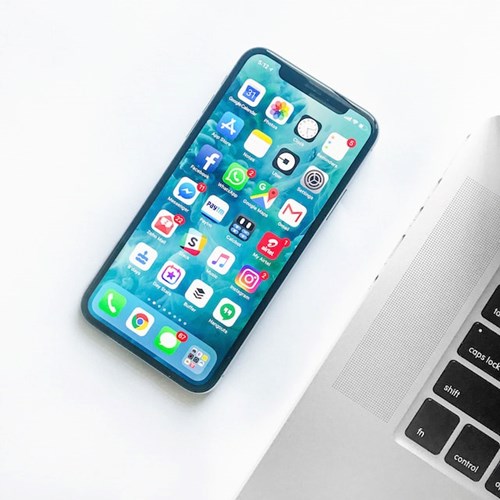Mobile jargon buster
Can you tell your SMS from your MMS? Does 1080p sound like your change jar?
O2 has developed a very handy ‘jargon buster’, which can keep you updated on all phrases related to mobile technology. We’ve highlighted some of the most confusing ones below!
Software phrases
Software – a set of instructions, data or programmes used to operate computers and execute specific tasks. An example of software would be an app on your phone. In contrast, hardware is the physical parts of a piece of equipment, for example a phone itself.
Operating system – a piece of software that is used to power computers, phones and mobile devices. If you have an Apple device such as an iPhone, it’ll use the iOS operating system. If you have a smartphone that isn’t made by Apple, it’ll most likely use the Android operating system.
Browser – a program that you use to view websites. Safari, Internet Explorer, Firefox and Google Chrome are all examples of web browsers.

Connectivity phrases
Network – the radio network used to send and receive calls and messages, as well as use the internet.
4G & 5G – the fourth and fifth generation of mobile phone technology, which provides your device with access to the internet. 5G offers greater speeds than 4G.
Wi-Fi – a wireless technology used to connect computers, tablets, smartphones and other devices to the internet. This can be used in addition to a 4G or 5G connection. Typically, if connected to both Wi-Fi and 4G/5G, a device will prioritise the Wi-Fi connection.
Dongle – a small USB device that allows you to access the internet with a 3G or 4G mobile broadband connection.
Roaming – the term for when you use your phone in another country. Often mobile network operators will charge you differently when using your mobile device abroad.

Data phrases
SMS & MMS – SMS is short for short message service, which is more often known as text messaging. MMS is short for multimedia messaging service, which is used to send messages that include multimedia content such as images.
Mobile data – this is the internet connectivity delivered to your mobile devices wirelessly. Whenever you use the internet on your phone, you're using data. Whether it's browsing the web, sending an email, or watching a TV programme. Downloading and using apps also uses data.
Bit, Kb, Mb & Gb – these are all units of data. A bit is the smallest unit of data that a computer can process and store. A kilobit (Kb) is made up of 1,000 bits, a megabit (Mb) is 1,000 kilobits and a Gigabit (Gb) is 1,000 megabits.
Upload & download – uploading is transferring a file from your mobile device to the internet. For example, transferring a photo from your phone onto Facebook or Instagram. In contrast, downloading is transferring something from the internet to your device. An example of this could be transferring an app onto your phone.
Kbps/Mbps/Gbps – these terms are all a measure of how fast you can upload or download something to or from the internet. All measure ‘per second’, Kbps is kilobits per second, Mbps is megabits per second, and Gbps is gigabits per second.
Hopefully you’re aware of some of these terms and you’ve learned the ones that you previously didn’t know!
You can find O2's full jargon buster on their website, where you can put your knowledge of mobile terminology to the test. You’ll also find plenty more to learn, including phrases used for taking pictures, screen information, as well as more general information.